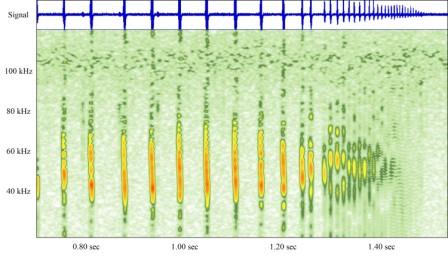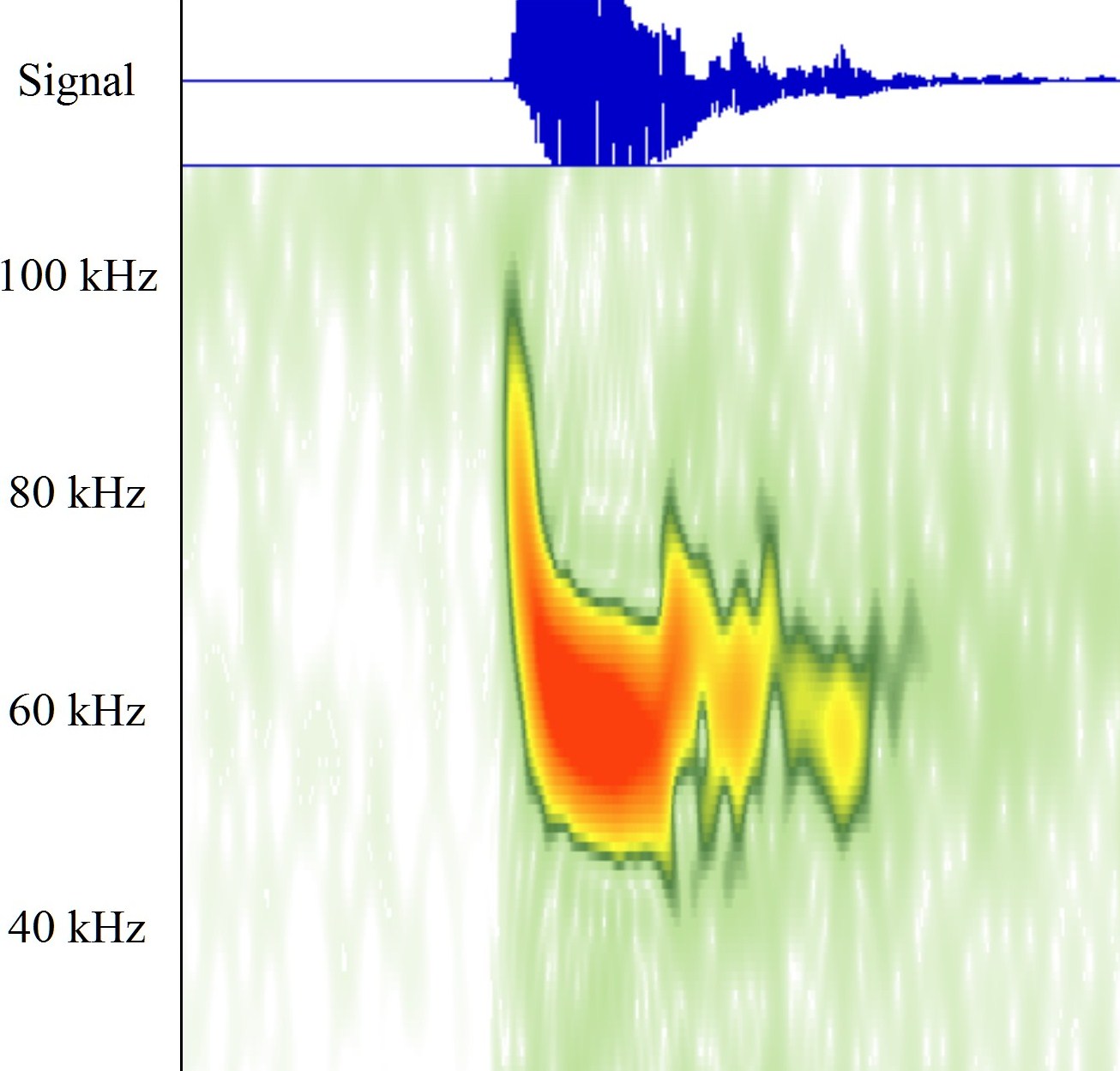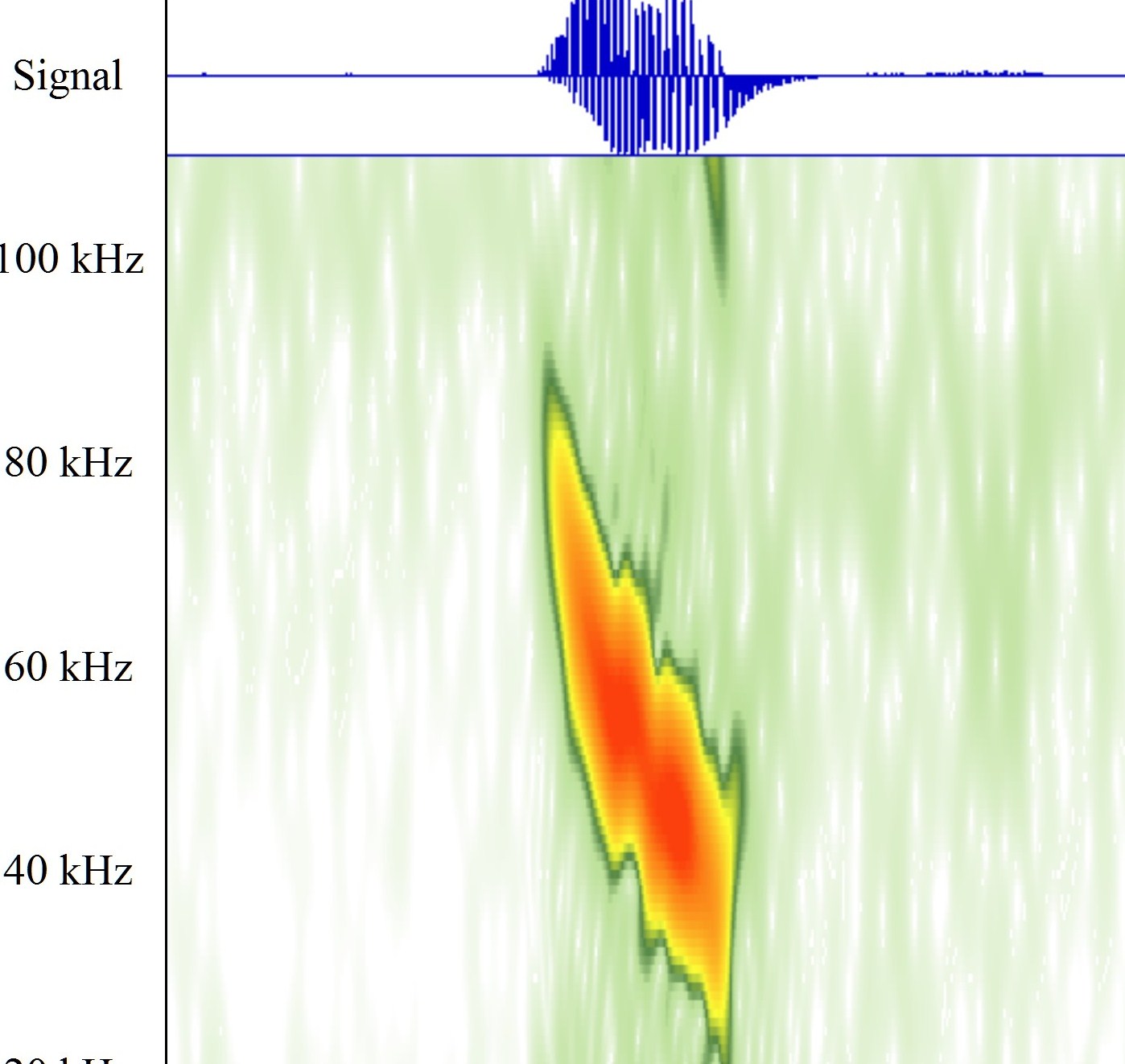 |
| Daubenton's Bat catching prey over village pond |
There are 17 species of bats that can be found in the UK with 16 of these found in Dorset and 11 been found in the village. These are Common Pipistrelle, Daubentons, Natterers, Barbastrelle, Brown Long Eared, Noctule, Serotine and Greater Horseshoe. Bats are nocturnal mammals and live in trees, buildings and caves. They have evolved over millions of years and are believed to have flown at the time of the dinosaures! Although bats are not actually blind they are much more effective at moving around and detecting their prey by echo locating their prey in flight using very high pitched sound pulses which are above the hearing range of people. However, there is technology around to help out with this in the form of bat detectors. Simple models ( costing £80 to £100 at 2024 prices ) reduce the frequency of the bat calls down by a factor of 10 into the human hearing range, they are typically the size of a mobile phone and are simply pointed in the general direction of the bat and the bat calls are played through a small loud speaker. These calls can also be recorded using a tape recorder then replayed through specialist computer software. When a bat is out hunting it sends out short sound pulses and listens for an echo from an air-borne insect. Once the bat has detected an insect it closes in causing the rate of transmitted pulses to increase. The picture on the right shows a recording we made over the village pond of a Daubenton’s bat and you can see how the sound pulses become closer together until the moth meets it’s demise in a final blur of sound. Click here to hear a recording of Common and Soprano Pipistrelles and Daubentons all flying at the same time over the pond.
Most bats use different sound pulses and are analysed on the computer to aid species identification. Some examples are shown in the other pictures.
 |
|
| Soprano pipistrelle |
 |
| Daubenton's Bat. |
The group have access to portable and fixed detectors and analysis software and has started to carry out surveys around the village. Specialists employed by Wessex Water to survey their site and we have independently completed garden surveys for vilaagers. Each summer we undertake a roost count of Common Pipistrelle bats on the Wessex Water site. and report these to the bat Conservation Trust as part of a national survey; the highest count being over 120 bats.
The equipment is easy to use and we are more than happy to lend it with some training to people in the village who would like to find out what is flying around their garden. For more information contact Dave Emery.
